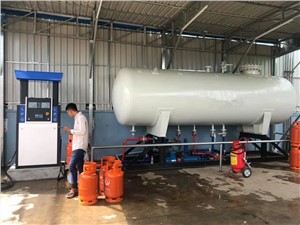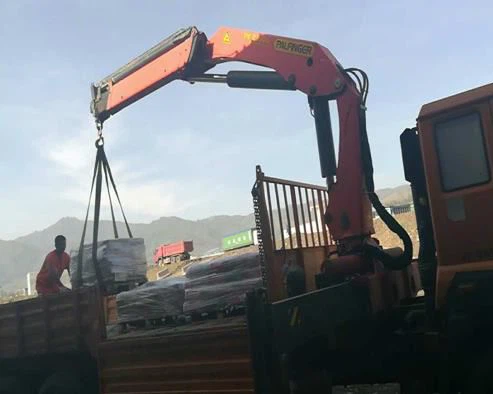Understanding Mine Trucks: The Backbone of Mining Operations

Introduction
Mine trucks play a critical role in the mining industry by transporting materials and ore from extraction sites to processing plants. These heavy-duty vehicles are designed to handle the harsh conditions of mines and offer a reliable solution for transporting massive loads over various terrains. This article delves deep into the world of mine trucks, exploring their types, features, operational efficiencies, and much more. Whether you’re a mining operator, an engineer, or just curious about the industry, this comprehensive guide provides vital information about mine trucks.
The Importance of Mine Trucks in Mining Operations
Mine trucks are specialized vehicles that stand at the forefront of mining operations. Their importance can be summarized in several key points:
- High Load Capacity: Mine trucks can transport large volumes of materials in a single trip, significantly enhancing operational efficiency.
- Durability: Built to withstand harsh environments, mine trucks are robust machines designed for longevity.
- Versatility: These trucks can navigate a variety of terrains, making them suitable for diverse mining operations.
- Safety Features: Modern mine trucks are equipped with numerous safety features to protect operators and avoid accidents.
Types of Mine Trucks
Mine trucks come in various types, each designed for specific tasks within the mining process. Here are the main types of mine trucks:
1. Haul Trucks
Haul trucks are the giants of the mining world. They are designed for transporting large quantities of ore and waste material directly from the mining site to processing points.
Features of Haul Trucks
- Load Capacity: Typically range from 40 tons to over 400 tons.
- Powerful Engines: Equipped with high-horsepower engines for optimal performance.
- Off-Road Capability: Designed to maneuver through rough terrains.
2. Articulated Dump Trucks
Articulated dump trucks offer flexibility and are designed for off-road conditions. They are composed of two sections connected by a hinge, allowing for better maneuverability.
Advantages of Articulated Dump Trucks
- Maneuverability: Easier to navigate in tight spaces.
- Terrain Adaptability: Can operate on uneven surfaces smoothly.
- Higher Stability: Lower risk of tipping over than standard dump trucks.
3. Rigid Dump Trucks
Unlike articulated dump trucks, rigid dump trucks have a fixed chassis. They are built for heavy-duty work and are efficient in transporting large masses of material from one point to another.
Benefits of Rigid Dump Trucks
- Efficiency: Designed for high load transport over short distances.
- Strong Build: Heavy-duty construction allows for long operating life.
Key Features of Mine Trucks
Understanding the features that make mine trucks efficient and reliable is essential for informed decision-making when selecting the right truck for your operations.

1. Engine Power
The engine power of a mine truck significantly affects its performance. High-horsepower engines ensure that the truck can handle maximum loads even on steep gradients.
2. Tire Design
Tires on mine trucks are specially designed to provide maximum traction and stability. Larger, rugged tires are essential for navigating rough terrains and maintaining safety.
3. Payload Capacity

Each mine truck is designed with a specific payload capacity. Knowing the payload requirement of your operation helps in selecting the right truck to avoid frequent overloads.
4. Safety Features
Modern mine trucks come equipped with safety features such as automatic braking systems, roll-over protection, and visibility enhancements to ensure the safety of operators and the equipment.
Operational Efficiency of Mine Trucks
Enhancing the operational efficiency of mine trucks involves several strategies. Here are some practical tips to consider:
1. Regular Maintenance

Regular check-ups and maintenance schedules can prevent mechanical failures and prolong the life of mine trucks. A maintenance checklist should include:
- Fluids and Filters
- Tire Condition and Pressure
- Brake Systems
2. Training Operators
Well-trained operators can maximize the effectiveness of mine trucks. Training should involve practical and theoretical knowledge about safe operation and truck handling.
3. Route Optimization
Optimizing the routes for trucks can lead to time savings and reduced fuel consumption. Using GPS and mapping technology enhances route planning.
4. Load Management
Ensure that trucks are loaded correctly according to their payload capacity to prevent damage and maintain safety on-site.
Technological Advancements in Mine Trucks
The mining sector is continuously evolving, and technological advancements are significantly changing how mine trucks operate. Key developments include:
1. Autonomous Trucks
With advances in automation technology, more mining companies are adopting autonomous trucks. These self-driving vehicles improve efficiency and reduce the need for human operators in hazardous environments.
2. Telematics Systems
Telematics systems assist in tracking the performance of mine trucks, allowing for better maintenance schedules and operational monitoring.
3. Electric and Hybrid Trucks
As the industry pushes for sustainability, electric and hybrid mine trucks have emerged as viable alternatives. These trucks reduce carbon emissions and operational costs.
Cost Considerations When Choosing Mine Trucks
Investing in mine trucks involves several cost factors. Here’s what to keep in mind:
1. Purchase vs. Lease
Deciding whether to purchase or lease mine trucks is a significant financial decision. Leasing can reduce immediate capital expenses, while purchasing may provide long-term savings.
2. Operating Costs
Consider fuel consumption, maintenance, and repair costs when evaluating the total cost of ownership. Efficient trucks can lead to lower long-term operational costs.
3. Resale Value
Choosing trucks with high resale value can also contribute to overall cost efficiency, especially when planning to upgrade the fleet in the future.
Practical Examples of Mine Truck Applications
1. Underground Mining
In underground mining scenarios, smaller, more maneuverable trucks are frequently used for material transport. For example, low-profile trucks may transport ore from mine faces to main shafts.
2. Open-Pit Mining
In open-pit mining, larger haul trucks are typically employed to transport ore or overburden material from the pit to processing facilities. This application showcases the need for high-capacity equipment.
3. Waste Transportation
Mine trucks are also essential in transporting waste material from mining operations. Efficient waste management practices can significantly reduce environmental impact.
Future Trends in Mine Truck Technology
The mining industry is witnessing exciting trends in mine truck technology that could revolutionize operations:
1. Sustainability Focus
As environmental concerns grow, the future of mine trucks includes a significant emphasis on sustainable practices through electrification and alternative fuel technologies.
2. Integration of AI
Artificial intelligence is expected to reshape the decision-making processes regarding mine truck operations, from predictive maintenance to optimizing load distribution.
FAQs About Mine Trucks
1. What is the typical lifespan of a mine truck?
The lifespan of a mine truck varies but can range from 10 to 15 years, depending on use, maintenance, and operating conditions.
2. How do mine trucks handle rough terrains?
Mine trucks are equipped with specialized tires and reinforced suspensions that allow them to navigate rocky, uneven surfaces safely.
3. Are mine trucks fuel-efficient?
Although mine trucks consume significant fuel due to their size and load, advancements in technology, such as hybrid engines, are improving efficiency.
4. What factors should I consider when buying a mine truck?
When purchasing a mine truck, consider factors such as payload capacity, operational efficiency, durability, safety features, and total cost of ownership.
5. Can mine trucks operate in any weather condition?
Most modern mine trucks are designed to function in various weather conditions, including rain, snow, and extreme heat, although certain limitations may apply.
6. How do I ensure my mine truck lasts longer?
Ensure regular maintenance, operator training, and proper loading practices to prolong the lifespan and efficiency of your mine trucks.
